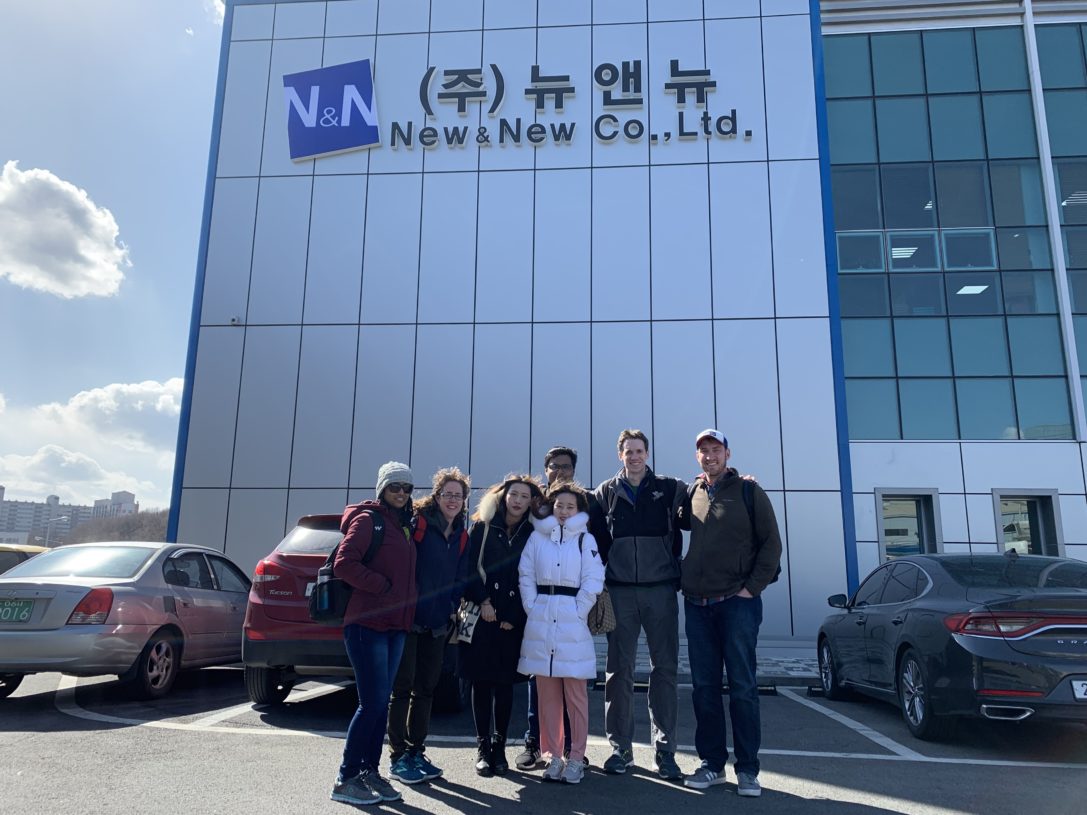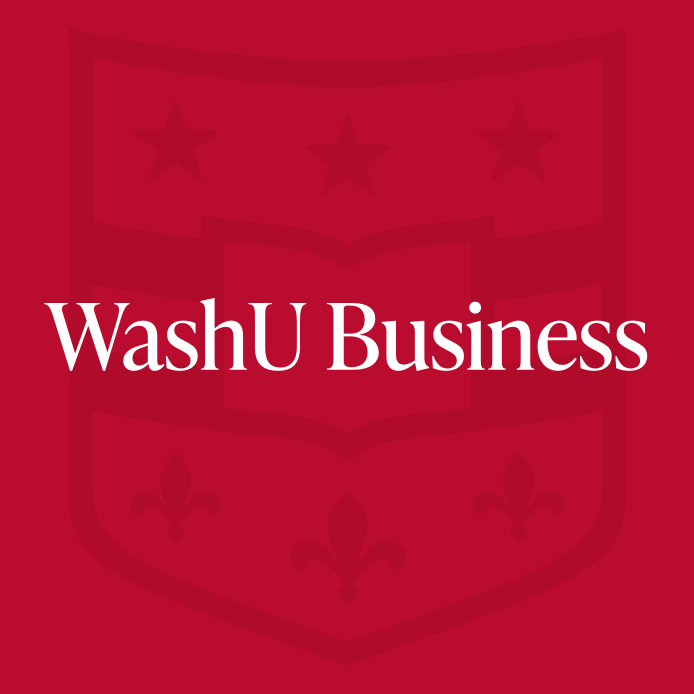CEL team consults in South Korea for skincare firm
- June 19, 2019
- By WashU Olin Business School
- 3 minute read

Ramakrishna Pappu, MBA ’20, a member of the Alyeska CEL project team in Daegu, South Korea, wrote this for the Olin Blog.
We were a diverse group of individuals from WashU Olin across the MBA, SMP and undergraduate programs, working together on the AGM-Alyeska project over the spring 2019 semester. The project was in the cosmetic skincare industry with two very passionate clients.
Our primary client was Alaska Glacial Mud (AGM), a producer of authentic pure Alaskan mud products and accessories. Our second client was Alyeska, a Korean company, which creates and markets new skincare formulations in Asia. AGM and Alyeska have been business partners for a few years, AGM using formulations created by Alyeska in its products.
The Center for Experiential Learning selects individuals and creates a team based on the broad experience, skills and interests of the students. A few of us in the team have prior experience working in the cosmetics industry that we could leverage to meet our client’s objectives. Personally, I was interested in utilizing my past experience and skills to help the client develop a market entry strategy, especially for the high-end skincare market—a section of the market that I wanted to get more exposure to.
Booming skincare market
The skincare market is booming, and South Korea is at the center of it, with high-quality products known around the world. Alyeska is located in Daegu, South Korea, and works closely with the local university and the government for R&D.
Alyeska has access to some world-class infrastructure, expertise and resources. It has teamed up with several other local companies to form a cooperative called Clewnco, a brand under which it sells its products in physical stores. Clewnco and Alyeska are looking to enter the US market and with the support of AGM, approached the CEL to help it figure out the best way to do so.
Specifically, our team’s objectives for the project included identifying how a new product can edge its way into the premium segment of the skincare market in the United States. What would be the best method of entry in this market? With increasing attention on Korean cosmetics in the world and strong competition within this segment, is it the right time to enter this market? What is the willingness to pay for the customers in this segment and what kind of pricing structure would help make Alyeska successful?
These are some of the questions that the CEL team helped address for the client during the project.
Value of overseas site visit
The site visit to Daegu gave the team an up-close look at the company’s laboratories, research and development facilities, as well as the manufacturing set up where the skincare products are made. Meetings with industry experts in skincare formulations and learning from their experiences and perspectives helped us gain deeper appreciation for our client’s work.
Interacting with the factory managers and staff showed us what it took to get raw materials transformed into finished products ready to be sold. We learned how business is done in Korea—often through informal networks that quickly shape into real business partnerships. The visit drove an understanding of the role disruptive innovation plays in the business landscape in Korea and we got a sense of the intrinsic motivations behind some business decisions made in the industry.
The last part of our visit included seeing the sights around the city of Daegu as well as the capital city of Seoul.
The trip was a fine balance between working in a consulting team for a client and being a tourist to see the sights at the end of an action-packed work week.
The CEL program is a great way for students to apply what they have learned in the classroom to real business scenarios. Working with an external client in the “real world” on a project that helps build and implement a company’s strategy in a high-pressure situation is a formative experience.
The CEL does a great job of exposing the teams to real life situations and complexities in the workplace, while under the aegis and support structure provided in a university setting. The experience we gained working with our clients and a new team has been very enriching and helps develop our leadership qualities that we can take into the future.
Pictured above: Sneha Varma, MBA ’20; Amy VanEssendelft, CEL staff; Jasmine Zhu, MSCA ’19; Ram Pappu, MBA ’20; Kate Baeg, BSBA ’20; Trip Smith, MBA ’19, CEL fellow; Oliver Culver, MBA ’19.
Media inquiries
For assistance with media inquiries and to find faculty experts, please contact Washington University Marketing & Communications.
Monday–Friday, 8:30 to 5 p.m.
Sara Savat
Senior News Director, Business and Social Sciences
